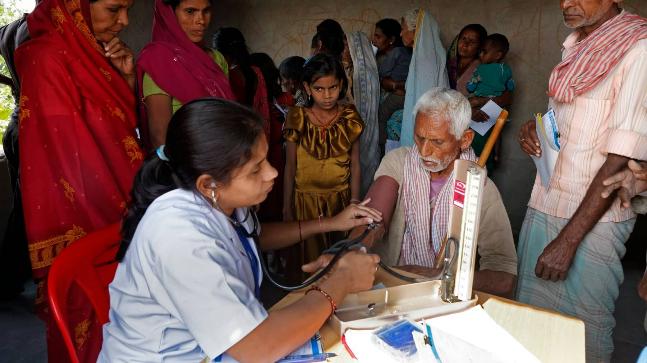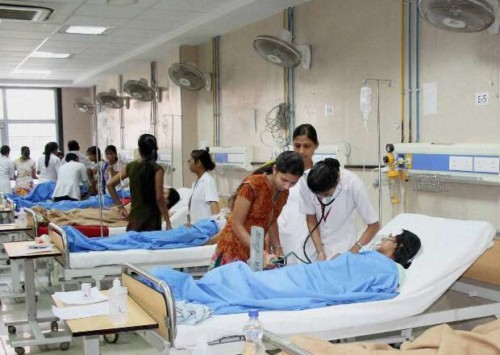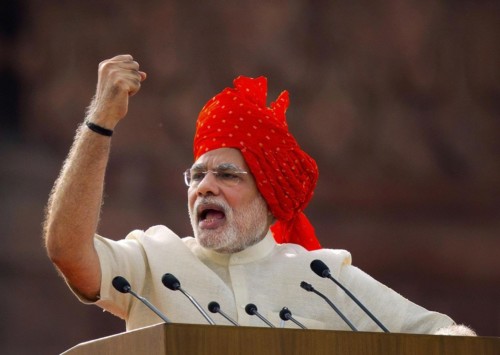Universal Health Coverage: Ambitious plans, inadequate budget

The government has failed to spend adequately on building healthcare centres and hospitals in rural areas
Even though the government of India has launched various healthcare schemes it has failed to spend adequately on healthcare. India needs to follow the examples of its neighbours and boost its health budget and build a system that can actually offer healthcare to all.
Unexpected hospitalisation or emergency healthcare cost is one of the most important reasons behind families falling into the poverty trap across the world. The World Health Organisation says that about half the world lacks essential health services and nearly 100 million people are pushed into extreme poverty due to healthcare payments and over 930 million people around the world spend over 10 pc of their household budgets on healthcare. In some countries, as much as 25 pc of the entire population is vulnerable to falling into this trap even by a simple and short stay in a hospital, let alone treating a chronic or serious illness.
Various reports have pointed to a direct and strong corelation between access to healthcare and inequality. While the rich are able to afford even the most expensive treatments without it reflecting on their bank balances, very largely thanks to a well-padded insurance policy, most of the poor or the lower income families on the threshold of poverty fall into the poverty trap by any member of the family falling ill.
An illness is a double blow for these families as not only can they not afford the cost of treatment, the loss of income of the sick member is an even a bigger handicap, especially if that is the sole earning member of the household.
The loss is not limited to the household concerned as every illness also impacts the overall economy of the country and by cutting the number of productive days lost to illnesses, the countries can indeed add significant push to their economic growth. This is the principal reason, besides the humanitarian issue involved with illnesses, that the World Health Organisation calls upon governments to ensure that the healthcare sector is not underfunded, as is the case in several countries, especially the poor and developing economies.
Heeding the WHO, several countries have moved towards broadening their healthcare safety net by targetting the economically weaker sections of their populations. While many developed nations, notably European Union member states, have had generous healthcare protections for practically their entire population, some developing nations have also followed them and launched Universal Health Coverage (UHC), ensuring protection for all their citizens and most crucially ensuring that the poor don’t have to incur any out of pocket expenses.
One of the first countries in the developing world to launch UHC was Thailand which took the plunge way back in 2002. Over 17 years later, Thailand appears to be the star performer in the entire South and South East Asian region. The WHO commends the country saying that despite sustained periods of political instability and a relatively weaker economy, Thailand has made good progress on UHC. Within a decade, life expectancy rose from 71.8 years to 74.2 as well as a decline in infant mortality and significantly lower number of households hit by catastrophic out of pocket expenses for illness and an increase in the savings recorded by households that were previously without a health coverage.
The WHO also says that higher expenditure on medicines and medical supplies boosted economic growth through increased demand in sectors like chemicals, pharmaceuticals, energy and transport. It says that the success of the programme also ensured that it survived two military coups and seven prime ministers.
Another early believer in UHC was the tiny Himalayan state of Nepal, which adopted UHC in 2008 and is the first and only country in South Asia, home to a fifth of global population, to achieve its SDG on time. In 2015, the move towards UHC was accelerated as health was made a fundamental right in the new Constitution that the country adopted. Nepal has made dramatic progress in several benchmarks vis-à-vis the health of its population, yet the government has not cut back its funding, which is at over 5 pc of the total government budget, in contrast with India, which spends a measly 3 pc of its budget on healthcare.
A number of other nations have joined in. El Salvador has abolished user fees and improved the healthcare infrastructure as part of an ambitious plan to expand health coverage, especially in remote and poor rural areas. African nations like Liberia, Gabon, Ghana, Sierra Leone and Rwanda have also made progress towards UHC.
India, the second most populous country has also been tinkering with a universal health coverage by slowly expanding the net for the poor. Last year, the government launched another, more ambitious plan that offers health coverage to nearly 500 million people. However, India has not put the money where its mouth is. As a share of the total government spending, the country’s health budget has been declining over the years and currently India spends just over 3 pc in healthcare.
The health insurance scheme launched by the government for the poor also suffers from an inherent weakness as the government has failed to spend adequately on building healthcare centres and hospitals in the rural and remote areas and as a result most persons are obliged to travel to the cities for the hospitals and are often obliged to go for treatment even in non-accredited hospitals where they have to pay, thus defeating the entire purpose of the scheme.
India needs to follow the examples of its neighbours and boost its health budget and build a system that can actually offer healthcare to all. Incidentally, India, like all other countries, has committed, to provide universal health coverage by the year 2030 as part of the Sustainable Development Goals. Benefits of a healthy population outstrip all costs that may have deterred governments from spending aggressively on healthcare. There is enough scientific and economic evidence to push them to change their mindset.











